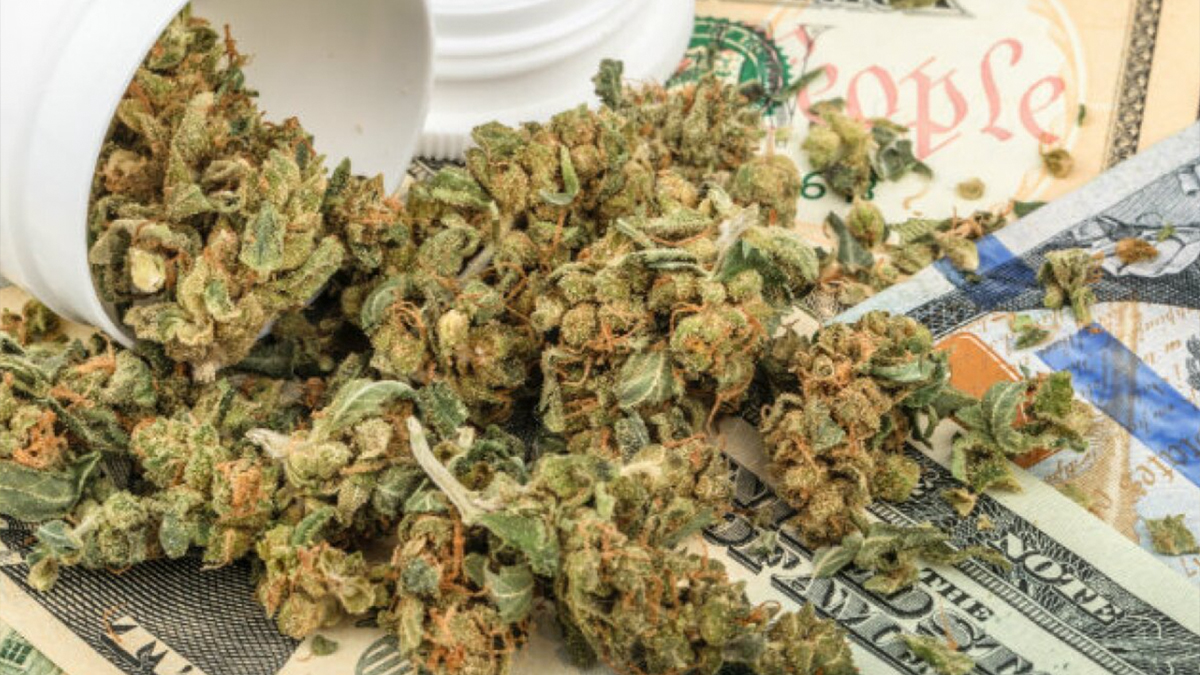
Adult-use states have collected more than $10 billion in tax revenue from legal cannabis sales, according to a new report by the Marijuana Policy Project (MPP).
Although legal weed revenue only accounts for a relatively small portion of individual states’ budgets, this steadily-growing source of income has helped adult-use states fund critical services and recover from the financial burden of the pandemic. Since 2014, the year that Colorado and Washington both began selling legal weed, adult-use states have collected at least $10.4 billion in pot tax revenue.
Over $3 billion of this revenue was collected in 2021 alone, and several states have yet to report their final quarter revenue for last year, so the total figure will actually be significantly higher. And although 18 US states have passed laws allowing taxed and regulated cannabis sales, seven of these states have not even started selling weed. Once these new markets mature, and as new states legalize retail pot sales, pot tax revenues will expand exponentially.
The report focuses solely on income generated from recreational pot taxes, and does not include revenue generated by thriving state medical marijuana markets. State revenue from cannabis business licensing and application fees or income taxes for weed industry employees is not included in this total, either.
“States that have legalized cannabis for adults are reaping significant economic benefits,” said MPP director of state policies Karen O’Keefe in a statement. “The legal adult-use cannabis industry has now generated over $10 billion in new tax revenue, and in many instances that revenue is being distributed to much needed public services and programs, including reinvesting in communities that were devastated by the war on drugs. This is in stark contrast to prohibition, which costs taxpayers billions of dollars each year to enforce.”
Adult-use states have been putting this additional source of income to good use. Washington state dedicates nearly $600 million out of every $1 billion in pot tax revenue to fund public health initiatives, including a fund that provides health insurance for low-income families. In Alaska, 50 percent of all cannabis taxes are reinvested in reentry programs for inmates, and Colorado has used nearly $472 in weed income to improve its public schools.
Illinois, which now makes more tax revenue from weed than it does from booze, has used this cash to fund economic development, violence prevention, youth development, civil legal aid, mental health services, and other essential programs. The state has also spent over $30 million to fund an expungement program that has helped over half a million former weed offenders clear their criminal records.
In addition to state taxes, individual municipalities that have opted in to the legal weed industry usually also collect local taxes on cannabis sales. In Denver, for example, the city’s 5.5 percent local cannabis sales tax has brought the city an extra $237.5 million as of last November.
And like states, many cities are reinvesting local pot taxes into marginalized communities. Evanston, Illinois is funding a reparations program with adult-use tax revenue, for example, and the mayor of Rochester, New York is planning to use local weed revenue to support a universal basic income program.
Chris Moore via (https://merryjane.com/news/adult-use-states-have-collected-over-dollar10-billion-in-weed-tax-revenue-since-2014)
Keep out of reach of children. For use only by adults 21 years of age or older.
